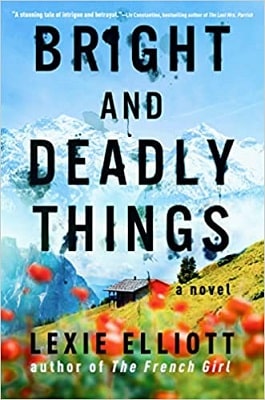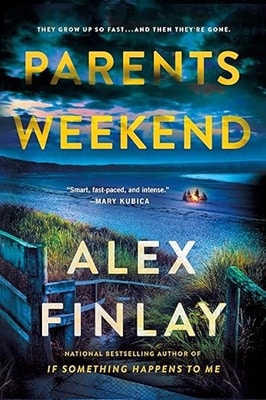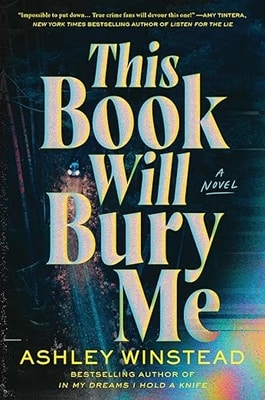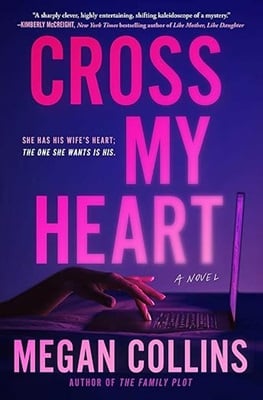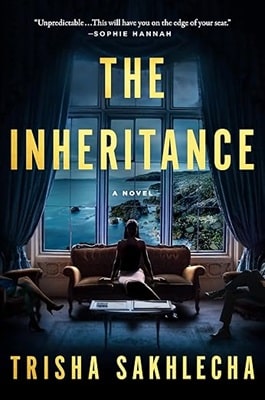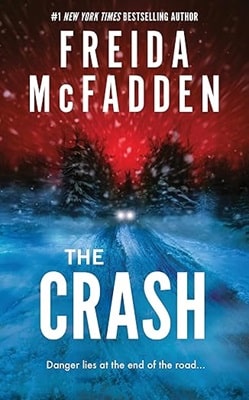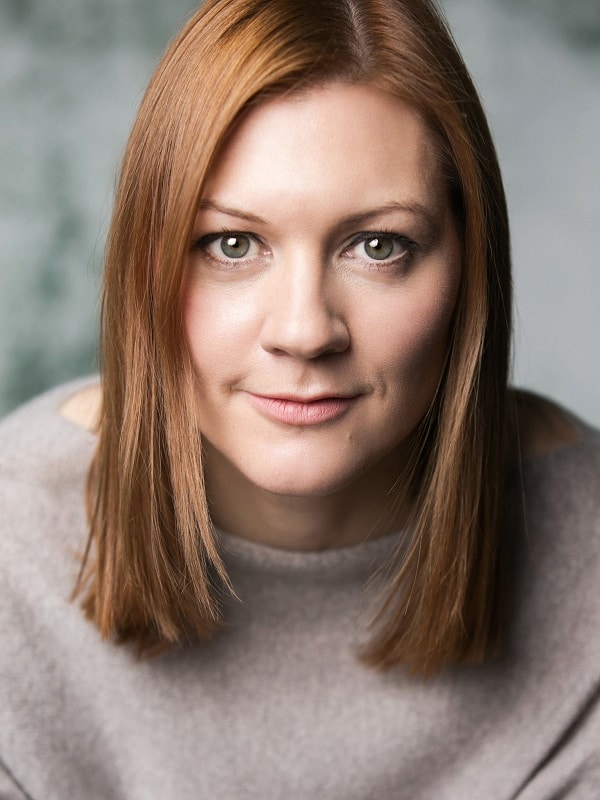
Q&A
Lexie Elliott
Lexie Elliott was born in 1976 and grew up in Scotland, at the foot of the Highlands. Her first attempt at a book came in primary school, and featured a horse; sadly, that manuscript has been lost. She attended a local state high school, Dunblane High School, and spent much of her teenaged years reading and swimming. In 1994 she began a Physics degree at University College, Oxford, where she obtained a first; she subsequently obtained a doctorate in Theoretical Physics, also from Oxford University. A keen sportwoman, she represented Oxford University every one of her seven years there in either Swimming or Waterpolo, and usually both. However, she never lost her longheld desire to become a writer and always had a drawer full of private scribblings.
Q Since Bright and Deadly Things is set in a real-life place—somewhere you’ve actually been before under similar academic circumstances—how much of the story was inspired by your own visit?
Lexie: For the record, nobody died on my visit and all the members of the chalet party got along swimmingly! But yes, a lot of what I would call the functional aspects of the chalet trip—how to get there, how the party members spend their time, the location and layout of the chalet—were directly inspired by my own trip. However, I must point out that I haven’t spent any significant time at the chalet since the year 2000, and the Covid pandemic prevented me from taking a research trip to refresh my memory, so the fictional chalet of the novel is definitely not an accurate representation of the real thing—not least because I also took the liberty of throwing in various tweaks and amendments to the geography and layout where necessary to better serve the story. The most significant inspiration was perhaps the least tangible: the atmosphere and ambience of the chalet itself, particularly at night.
Q It was years after your academic retreat to the Chalet des Anglais that you started writing Bright and Deadly Things. What brought that specific location to the forefront of your mind, demanding to be written into the book?
Lexie: I was mulling over setting a novel in the world of academia, and Oxford specifically, but I wanted to do something a little different to a campus-based thriller, and I also wanted to introduce a “locked room” aspect to the novel. Memories of the chalet bubbled up in my mind, and it just seemed to fit all criteria perfectly. I remember thinking, when I was there, that the place had a very special atmosphere—particularly at night—which would work well for a novel, but I wasn’t writing novels back then, and thus I hadn’t consciously considered it since my trip there.
Q Location is something very important to you in all your stories. Do you always build your stories around the setting?
Lexie: Setting is enormously important to me; sometimes it even functions as an additional character in the novel. I usually start a new project with just a sense of an atmosphere—that really intrigues me and keeps drawing me back to it—and then that ambience builds into a location. The characters tend to present themselves after all of that is established; I think it’s hard for characters to develop without a landscape for them to inhabit. After all, we’re all shaped by the environment around us; I would be a different writer and a different person had I grown up somewhere other than Scotland, or had I never attended Oxford University.
Q The grandfather clock plays a major role in adding to the rising tension and mysteriously being the only salvageable piece from the Chalet fire. Is this based off of a surviving piece from the real-life fire at the Chalet?
Lexie: The clock is entirely fictional. I don’t remember there being any significant clocks, grandfather or otherwise, in the real chalet, though there may have been; my memory is certainly not perfect. When I wrote the outline for this novel, the clock didn’t appear in it at all, but it began to present itself to me whilst I was writing the first draft and wouldn’t be ignored; I suppose it first came into being as a physical manifestation of Emily’s recognition that her grief is stopping her from embracing the time she has been allotted on this earth, but it began to represent much more than that as the novel developed.
Q You have an academic background, just like your main character Emily. Was it exciting to reimagine your academic career through a murder-mystery lens?
Lexie: It was! It took me back to a very happy time in my life, but also an emotionally chaotic one; it was particularly interesting to me to view the academic world, which I had been immersed in for seven years, through the eyes of characters at different stages of their lives. Every university community is a different place for the undergraduates versus the graduates versus the fellows and so on—each strata of the community has different worries and concerns and ambitions—which I probably didn’t fully appreciate at the time; it was fascinating to explore that aspect.
Q What appeals to you about writing psychological suspense?
Lexie: For me, the strong appeal comes from the structure that it provides. I think of it as a form of scaffolding—with that firmly in place, you can build on it to explore whatever other themes and ideas you might be interested in, without destroying the balance or the pace of the novel. Readers want a smart whodunnit, of course, but if there isn’t any more substance to the novel than the mechanics of that, it becomes eminently forgettable. What makes a really good novel stand out is great characterization—with character arcs and conflicts and concerns that the readers can feel invested in—unfolding in an intriguing, atmospheric setting.
Q What do you hope readers will get from spending time with Emily at the Chalet des Anglais in Bright and Deadly Things?
Lexie: I very much hope they can lose themselves for a while in a well-paced, satisfying character-driven thriller, that gives them a little bit of insight into a world that very few are invited to join. And I hope that experience pushes them to seek out otherLexie Elliott novels!
Q Your title is very intriguing! Any inspiration in choosing Bright and Deadly Things?
Lexie: Of course without spoilers! In part, it’s a sly allusion to the Bright Young Things of 1920s London, whose privilege and flamboyant behavior caught the attention of both the media and many prominent writers of the time; I say sly because similar accusations of privilege and excess are often flung at Oxbridge students, and of course that’s fair for some, but for many—myself included, and many of the characters in this novel—that assumption would be far from the truth. I also like the ambiguity of bright—bright how? Intellectually, socially, or in terms of absolute luminosity? And what things does this adjective describe? The readers will have to decide all of that for themselves after reading the book!
Q What are you working on next?
Lexie: I’ve been working on the outline for my next psychological thriller, but it’s very early days on that project, so I’m afraid I’m not really able to tell you anything interesting about it. I’ve also been toying with a writing project in a completely different genre, and training for a marathon (which will be in April, assuming I can stay injury-free until then); there’s plenty that’s keeping me busy!
Lexie Elliott's Latest
Bright and Deadly Things
The Chalet des Anglais should be the ideal locale for recently-widowed Oxford don Emily to begin cutting through the fog of her grief. With no electricity, running water, or access by car, the rustic chalet nestled at the foot of the verdant, snow-topped Alps should afford Emily both time and space to heal. Joining her will be a collection of friends from the university, as well as other fellows, graduates, and undergraduates.
Something feels off, though—heightening Emily’s existing grief-induced anxiety. Before even making it to the airport, she’s unnerved by a break-in at her home. Once at the chalet, tension amongst the guests is palpable. Her friends and colleagues are behaving oddly, and competition for a newly opened position has introduced a streak of meanness into the otherwise relaxing getaway. As hostilities grow, Emily begins to wonder if the chalet’s dark history has cast a shadow over the retreat. In the salon, a curious grandfather clock looms, the only piece of furniture to survive a deadly blaze a century ago. As its discordant bell begins to invade everyone’s dreams, someone very real has been searching through Emily’s things and attempting to hack into her computer.
When a student disappears, Emily realizes that she’d better separate friend from foe, and real from imagined—or the next disappearance may be her own.

